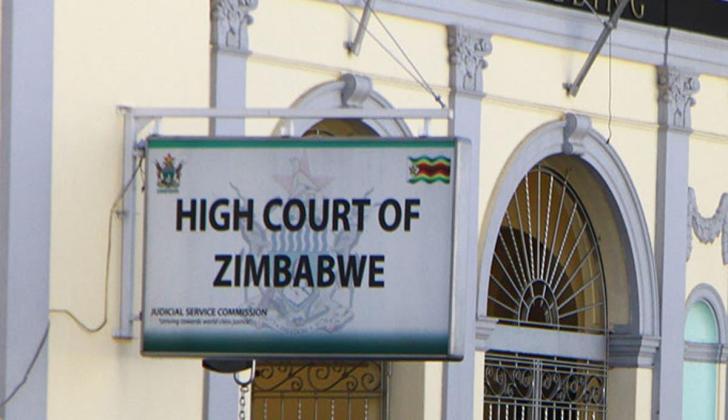News / National
High Court grants bail to 89 March 31 'protesters'
15 May 2025 at 13:11hrs |
0 Views

The High Court has granted bail to 89 individuals who were arrested on March 31 during anti-government protests, ending a month-and-a-half-long incarceration after they were initially denied bail by a magistrate.
Justice Esther Muremba delivered the ruling on appeal, ordering the release of the accused on US$100 bail each. The decision overturns the magistrate court's earlier ruling and brings relief to families who had been demanding the release of their loved ones.
"The appeal by all the appellants be and is hereby allowed," said Justice Muremba. "The decision by the court a quo denying the appellants bail be and is hereby set aside and in its place is substituted by the following: Each accused shall deposit US$100 with the Clerk of Court at Harare Magistrates Court."
The suspects are required to reside at the addresses provided during the bail hearing and report to the police every fortnight until the case is finalised. Specific reporting stations were designated for a few individuals outside Harare: Joseph Gatsi (Chegutu), Kudzanai Murungweni (Sanyati), Memory Dehwe (Rusape), and Munyaradzi Kanonama (Glendale).
Justice Muremba also issued a stern rebuke to the National Prosecuting Authority, pointing out glaring weaknesses in the state's case. She criticised the lack of evidence in the docket, noting that only 15 of the 95 accused had any form of arresting officer statements, and none had witness statements.
"Out of 95 there are only 15 statements by arresting details explaining where the accused were arrested. If we are to proceed to trial, what evidence are you going to use against them?" asked the judge. "It shows that you have nothing in your docket. How can you have a whole lot of people in custody without witnesses?"
She warned against the trend of detaining suspects for prolonged periods without evidence, only for the state to later drop charges, labelling it a miscarriage of justice.
Prosecutor Charles Muchemwa conceded under pressure that the magistrate had erred in denying bail and admitted that the state could face serious difficulties prosecuting the group.
Other co-accused from the same protest had previously been granted bail in separate High Court applications.
The case has drawn criticism from human rights advocates, who accuse the state of using pre-trial detention as punishment in politically charged cases.
Justice Esther Muremba delivered the ruling on appeal, ordering the release of the accused on US$100 bail each. The decision overturns the magistrate court's earlier ruling and brings relief to families who had been demanding the release of their loved ones.
"The appeal by all the appellants be and is hereby allowed," said Justice Muremba. "The decision by the court a quo denying the appellants bail be and is hereby set aside and in its place is substituted by the following: Each accused shall deposit US$100 with the Clerk of Court at Harare Magistrates Court."
The suspects are required to reside at the addresses provided during the bail hearing and report to the police every fortnight until the case is finalised. Specific reporting stations were designated for a few individuals outside Harare: Joseph Gatsi (Chegutu), Kudzanai Murungweni (Sanyati), Memory Dehwe (Rusape), and Munyaradzi Kanonama (Glendale).
Justice Muremba also issued a stern rebuke to the National Prosecuting Authority, pointing out glaring weaknesses in the state's case. She criticised the lack of evidence in the docket, noting that only 15 of the 95 accused had any form of arresting officer statements, and none had witness statements.
"Out of 95 there are only 15 statements by arresting details explaining where the accused were arrested. If we are to proceed to trial, what evidence are you going to use against them?" asked the judge. "It shows that you have nothing in your docket. How can you have a whole lot of people in custody without witnesses?"
She warned against the trend of detaining suspects for prolonged periods without evidence, only for the state to later drop charges, labelling it a miscarriage of justice.
Prosecutor Charles Muchemwa conceded under pressure that the magistrate had erred in denying bail and admitted that the state could face serious difficulties prosecuting the group.
Other co-accused from the same protest had previously been granted bail in separate High Court applications.
The case has drawn criticism from human rights advocates, who accuse the state of using pre-trial detention as punishment in politically charged cases.
Source - zimlive
Join the discussion
Loading comments…










































